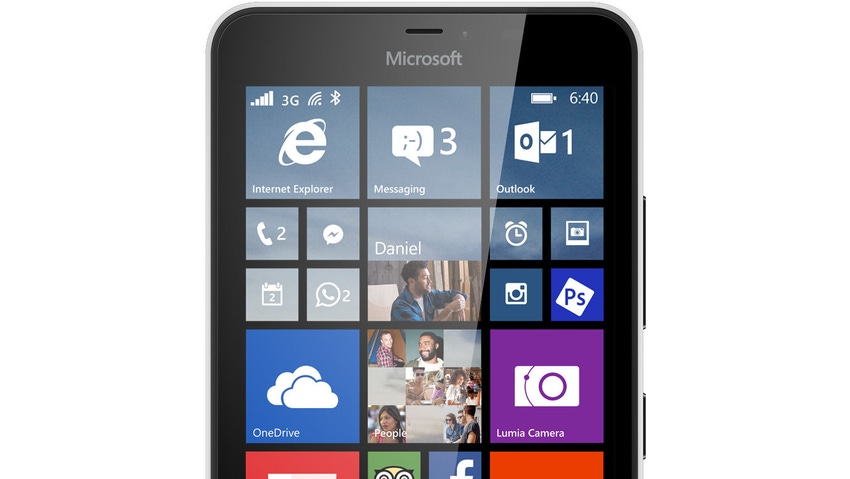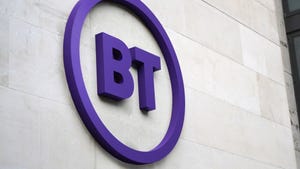Software giant Microsoft has announced a ‘restructure’ of its phone hardware business that amounts to a write off of the entire Nokia acquisition.
July 8, 2015

Software giant Microsoft has announced a ‘restructure’ of its phone hardware business that amounts to a write off of the entire Nokia acquisition.
7,800 jobs will be lost, mainly in the phone business and on top of around $800 million in restructuring charges (over $100,000 per head!), Microsoft is recording an impairment charge of $7.6 billion, which is pretty much what Microsoft paid for Nokia less than two years ago. No wonder Stephen Elop was shown the door.
In the light of this final Nokia disposal it’s hard to view Microsoft’s acquisition as anything other than a complete failure and to derive any positives from Elop’s involvement in the whole sorry saga. The only consolation is that the market had already priced this write-off into Microsoft’s share price, which at time of writing had been unaffected by the announcement.
“We are moving from a strategy to grow a standalone phone business to a strategy to grow and create a vibrant Windows ecosystem including our first-party device family,” said Microsoft CEO Satya Nadella. “In the near-term, we’ll run a more effective and focused phone portfolio while retaining capability for long-term reinvention in mobility.”
The acquisition was always a strange one, as at the time Microsoft was still trying to apply its standard Windows business model to Windows Phone – i.e. get people to pay for the license. The problem was that a superior platform in the form of Android was already available for free, and Microsoft only secured Nokia’s loyalty with generous inducements. To then turn around and acquire its main customer was effectively an admission that the licensing model had failed in this case.
It was then assumed that Microsoft planned to make money from the devices themselves, in spite of the fact that the rest of the smartphone industry with the exception of Apple and Samsung was struggling to break even. Inevitably this was soon revealed to be a forlorn quest and Microsoft started supporting other mobile platforms.
Today Microsoft’s approach to mobile is to try to sell software and services such as Office 365 and Skype to all mobile platforms. At the same time Windows 10 has been designed to be one unified platform regardless of device, but with smartphones seemingly relegated to an afterthought.
Here’s Nadella’s full internal email on the matter, which also touches on recent disposals in other non-core areas such as mapping and advertising:
Team,
Over the past few weeks, I’ve shared with you our mission, strategy, structure and culture. Today, I want to discuss our plans to focus our talent and investments in areas where we have differentiation and potential for growth, as well as how we’ll partner to drive better scale and results. In all we do, we will take a long-term view and build deep technical capability that allows us to innovate in the future.
With that context, I want to update you on decisions impacting our phone business and share more on last week’s mapping and display advertising announcements.
We anticipate that these changes, in addition to other headcount alignment changes, will result in the reduction of up to 7,800 positions globally, primarily in our phone business. We expect that the reductions will take place over the next several months.
I don’t take changes in plans like these lightly, given that they affect the lives of people who have made an impact at Microsoft. We are deeply committed to helping our team members through these transitions.
Phones. Today, we announced a fundamental restructuring of our phone business. As a result, the company will take an impairment charge of approximately $7.6 billion related to assets associated with the acquisition of the Nokia Devices and Services business in addition to a restructuring charge of approximately $750 million to $850 million.
I am committed to our first-party devices including phones. However, we need to focus our phone efforts in the near term while driving reinvention. We are moving from a strategy to grow a standalone phone business to a strategy to grow and create a vibrant Windows ecosystem that includes our first-party device family.
In the near term, we will run a more effective phone portfolio, with better products and speed to market given the recently formed Windows and Devices Group. We plan to narrow our focus to three customer segments where we can make unique contributions and where we can differentiate through the combination of our hardware and software. We’ll bring business customers the best management, security and productivity experiences they need; value phone buyers the communications services they want; and Windows fans the flagship devices they’ll love.
In the longer term, Microsoft devices will spark innovation, create new categories and generate opportunity for the Windows ecosystem more broadly. Our reinvention will be centered on creating mobility of experiences across the entire device family including phones.
Mapping. Last week, we announced changes to our mapping business and transferred some of our imagery acquisition operations to Uber. We will continue to source base mapping data and imagery from partners. This allows us to focus our efforts on delivering great map products such as Bing Maps, Maps app for Windows and our Bing Maps for Enterprise APIs.
Advertising. We also announced our decision to sharpen our focus in advertising platform technology and concentrate on search, while we partner with AOL and AppNexus for display. Bing will now power search and search advertising across the AOL portfolio of sites, in addition to the partnerships we already have with Yahoo!, Amazon and Apple. Concentrating on search will help us further accelerate the progress we’ve been making over the past six years. Last year Bing grew to 20 percent query share in the U.S. while growing our search advertising revenue 28 percent over the past 12 months. We view search technology as core to our efforts spanning Bing.com, Cortana, Office 365, Windows 10 and Azure services.
I deeply appreciate all of the ideas and hard work of everyone involved in these businesses, and I want to reiterate my commitment to helping each individual impacted.
I know many of you have questions about these changes. I will host an employee Q&A tomorrow to share more, and I hope you can join me.
Satya
About the Author(s)
You May Also Like








.png?width=300&auto=webp&quality=80&disable=upscale)


_1.jpg?width=300&auto=webp&quality=80&disable=upscale)


.png?width=800&auto=webp&quality=80&disable=upscale)